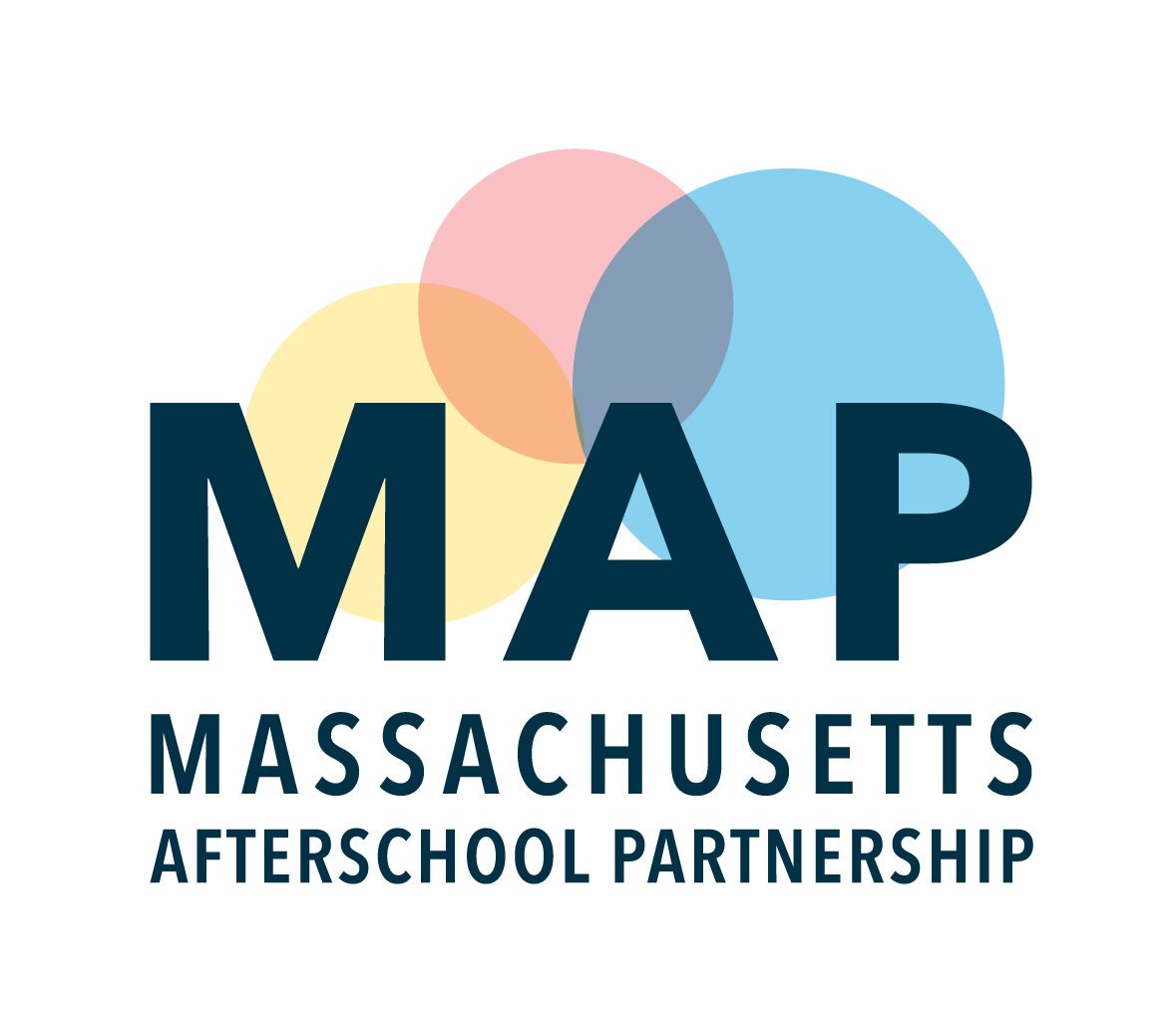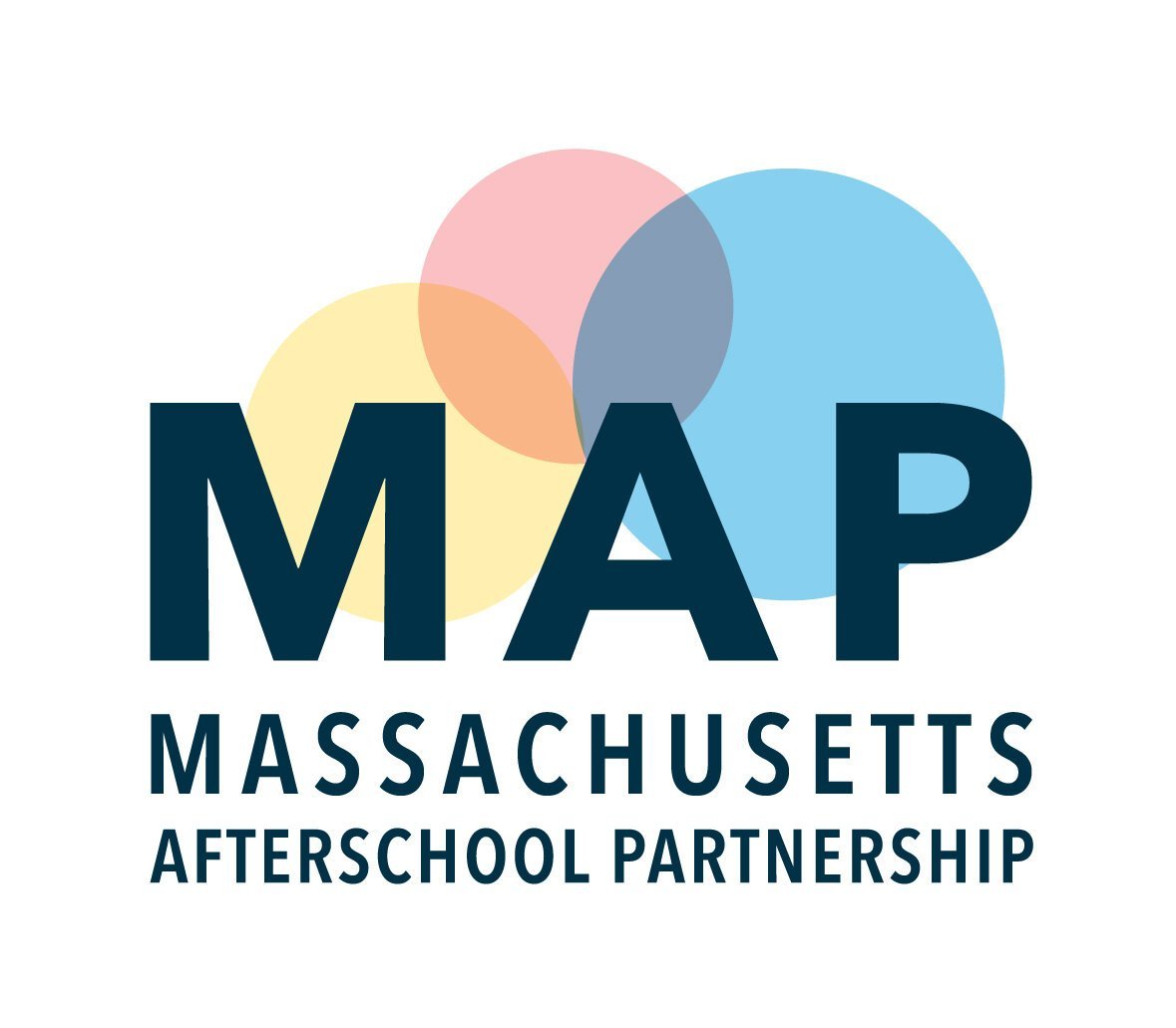Integrating Equity
MAP’s Equity Statement
MAP has the firm belief that diversity, equity, inclusion, belonging, and justice are integral to our success as a non-profit serving historically marginalized communities, especially black and brown populations, across Massachusetts. Our work in this space is an ongoing and a continuous process that we have refined and improved over time.
MAP is working to deepen our organizational approach to diversity, equity, inclusion, belonging and justice in comprehensive and sustainable ways. First, we are working actively to increase Board member diversity. MAP is recruiting and building a board that represents a wide range of racial, gender, professional, ability, and sexual orientation diversity, including those who have direct experience working in the afterschool field. MAP has solicited input from experts and community members to help foster change.

Equity in our work
-
We are developing a very intentional organizational change strategy to address organizational inequities and implement meaningful anti-racist policies and practices. This change strategy has included bringing in equity experts to guide our organizational leadership and staff to address current policies, staffing, and decision-making with the goal of making lasting systemic changes to MAP’s internal operations. This is a ongoing process to address white supremacy culture and will continue to include guidance from well regarded anti-racist experts.
MAP is committed to practicing what we preach. Team Meetings and Board engagements are used to review progress towards incorporating a DEI strategy in all operations, including organizational practices, policies, advocacy, and training to lead to systemic change. This includes regular review of our Strategic Plan to outline what areas we are succeeding in doing anti-racist work, and which areas require updates, revision, or clear action steps. MAP has “tough” conversations that would make many other organizations uncomfortable, but we do it understanding what is needed to address the challenge of making MAP a more equitable organization.
-
All of MAP’s professional development trainings, coaching and mentoring for afterschool program staff are developed with a DEI framework. Professional development is offered at no cost to participants, so everyone has access to trainings. All PD addresses the developmental needs of youth so that afterschool educators are equipped to design a curriculum that meets the unique needs of the youth in their programs. Trainings are offered both in person and virtually in order to reach a variety of programs and educators throughout the entire state, including the islands. MAP trainers facilitate professional learning communities, or “PLCs,” to engage smaller groups of educators in spaces that encourage discussion, challenging assumptions, and behaviors, analyzing program practices, and strengthening or creating new ones. MAP works with programs to intentionally support children of all demographic backgrounds, with a focus specifically on addressing interpersonal, institutional, and cultural racism and other forms of oppression.
Our organizational approach to equity includes having a network of trainers who are diverse in languages spoken as well as race, ethnicity, religious background, ability, gender and gender identity, sexual orientation and socio-economic background. MAP currently offers sessions in English, Spanish and Portuguese, and are in the process of developing PD in Cantonese and Mandarin. MAP’s PD opportunities provide support for educators working with diverse students, including our 5-hour CEU approved course on Working with English Language Learners.
-
MAP has incorporated a racial justice and equity framework in our data collection and sharing strategies. This includes our frontline staff survey, issued in 2022, in which we have collected data on the racial and gender demographics of participants.
Upon review of this data, MAP has identified that as an organization we need to prioritize outreach (such as site visits) in communities of color in order to ensure we are engaging voices of Black, Latinx, Asian, and Indigenous people working in the out-of-school time field to learn about their strengths, challenges, and needs.
To better highlight critical areas of need, MAP created an out-of-school time story map to outline where afterschool and summer programs are receiving state and federal funding, overlaid with data on child poverty.
-
MAP is frequently in conversation with regional and national partners where we share challenges and success stories in advancing organizational equity and anti-racist policies. As part of the national 50 State Afterschool Network, MAP participates in and facilitates networking opportunities to spread best practices within the afterschool field. Additionally, MAP plans to integrate an equity and justice framework into our committees and coalitions. In doing so, MAP aims to support local and statewide initiatives that better serve black and brown communities and ensure policies reflect the needs of families and youth.
Anti-Racist Resources & Resources to Tackle White Supremacist Ideology
Afterschool programs can and should be part of the solution to tackling and interrupting racist and other violent ideologies. There are plenty of resources to help.
A recent study by the University of Chicago stated that while most parents say they are comfortable talking about race and racism, most white parents do not actually engage their children in conversations around this. Parents of color are much more likely to discuss race with their children.
As difficult and uncomfortable as it may be for program providers to begin these conversations, it is essential that they aid in dismantling white supremacist ideology and other forms of hate early on. Here are some resources that you can use to continue conversations in your afterschool and out-of-school classrooms:
Black Boys Read Too compiled this list of books to help engage and support students in conversations around racism and racial justice.
Here are 8 ways teachers can address White Supremacy in their Classrooms.
Here is a helpful blog post on White Fragility in Students and how necessary it is to begin discussions in classrooms, as white students and white boys in particular are often targeted by white supremacist groups.
If you have additional resources that you feel would be useful for other educators and program providers in addressing gun violence, white supremacist ideology, or other difficult topics, please send to Chloe McElligott, Director of Outreach and Engagement at chloe@massafterschool.org.
Classroom Resources
THE 1619 PROJECT
The Pulitzer Center and Mizzen by Mott, a free app dedicated to helping afterschool professionals, have partnered to deliver The 1619 Project into ASOST programs. The 1619 Project, which first launched in 2019 with a special issue of The New York Times Magazine. Educators can use these resources and activities to foster conversations around our nation’s history, national memory, and racial justice using the 1619 materials, which are designed to engage students in creative work and critical thinking. Click here to access the 1619 Project Curriculum!
Afterschool educators can also invite journalists who report on contemporary racial justice issues to speak with their students through the Pulitzer Center’s virtual journalist visit program, an important step to increasing critical media literacy skills.
AFTERSCHOOL ALLIANCE
Check out this guest blog post by Dr. Jackie Thompson on Afterschool Snack. She has suggestions for afterschool providers on building more just and equitable out-of-school learning environments for their students and families.
CLASSROOM RESOURCES
Just Like Me Presents hosts workshops and develops resources to assist children to increase their access to culturally responsive teaching materials available to parents, teachers, and community groups. Check out their workshops, featured books and authors, and podcast.
Learning for Justice has classroom resources that can be used by afterschool providers, including lesson and learning plans, student texts and tasks, teaching strategies, film kits and printable posters.
Gender Inclusive Classrooms has lesson plans for early education, elementary, and middle and high school students to help create truly inclusive classrooms for students of all gender expressions.
Welcoming Schools has a list of lesson plans to help educators create classrooms that affirm all student identities across the gender spectrum.
Resources for Programs
Organizations
The National Equity Project offers 3-hour workshops and longer in-depth courses, as well as multi-day Black Teacher Project institutes.
The National Association for Multicultural Education has a Multicultural Learning Section set of resources who want to know how to incorporate multicultural education in their classrooms.
Merge for Equality’s mission is to engage people and communities in transforming masculinity to advance gender equality. They offer healthy boys trainings, organizational consulting, partnership opportunities, and have a children’s book campaign.
The Wellesley Centers for Women does research on many issues relating to equity, like the Black Girls and STEM Education Research Initiative, the Justice and Gender Based Violence Research Initiative, and the SEED (Seeking Educational Equity and Diversity) Project.
MASSACHUSETTS PROGRAM HIGHLIGHTS
The LEAH Project works to promote the power of youth, especially BIPOC youth, in STEM fields through paid internships, college and career readiness programming, and youth leadership opportunities.
sySTEMic flow is dedicated to inspiring, motivating, and building the next generation of STEM leaders, prioritizing the development and education of students who identify as Black, Indigenous and/or women of Color.
Enroot is working to empower immigrant youth to achieve academic, career and personal success through inspiring OST experiences.
Girls Inc., Lynn delivers life-changing programs to girls to help them overcome serious barriers and engage in healthy lifestyles and succeed in school.
Changing Culture and Systems
Dismantling Racism offers a helpful workbook and other resources here, including assumptions, defining racism, internalizations, and more.
One such resource includes an article on the characteristics of White Supremacy culture, which has been updated since its original publication in 1999. Some characteristics include individualism, perfectionism, fear of open conflict, and paternalism. How might these issues be showing up in your ASOST programs and power structures? How can you challenge them?
Another important reading is this article: The racist and sexist roots of child care in America (2021). It provides historical context on the current systemic issues in our child care systems in the United States, particularly around the exploitation of the labor of women of color.
ADDITIONAL RESOURCES
Equity and Inclusion: An Action Agenda for Youth Development Professionals (2017).
Developing and Refining Transformative SEL toward Equity.
Alliance for Early Success’ Racial Equity and Advocacy Resource Center.





